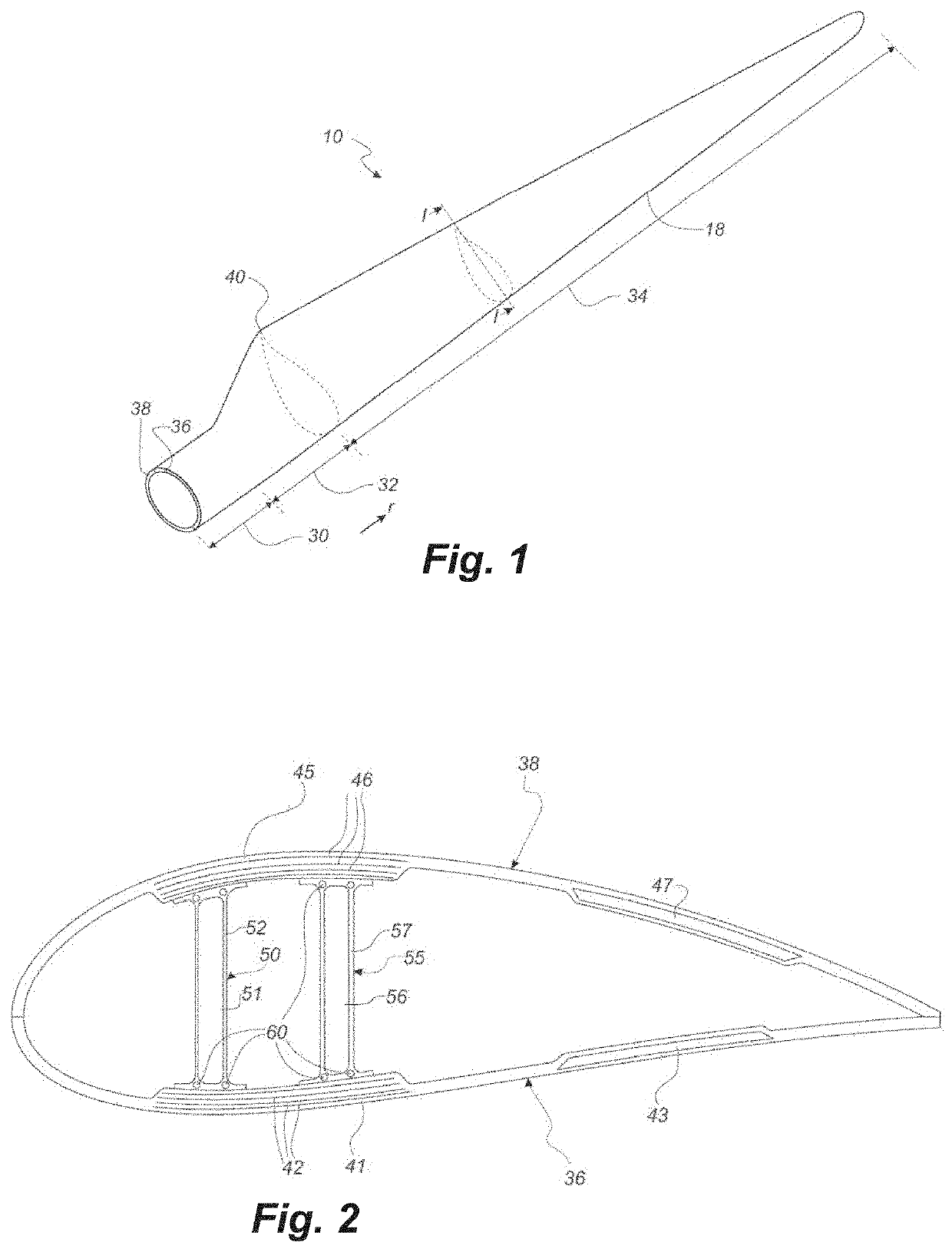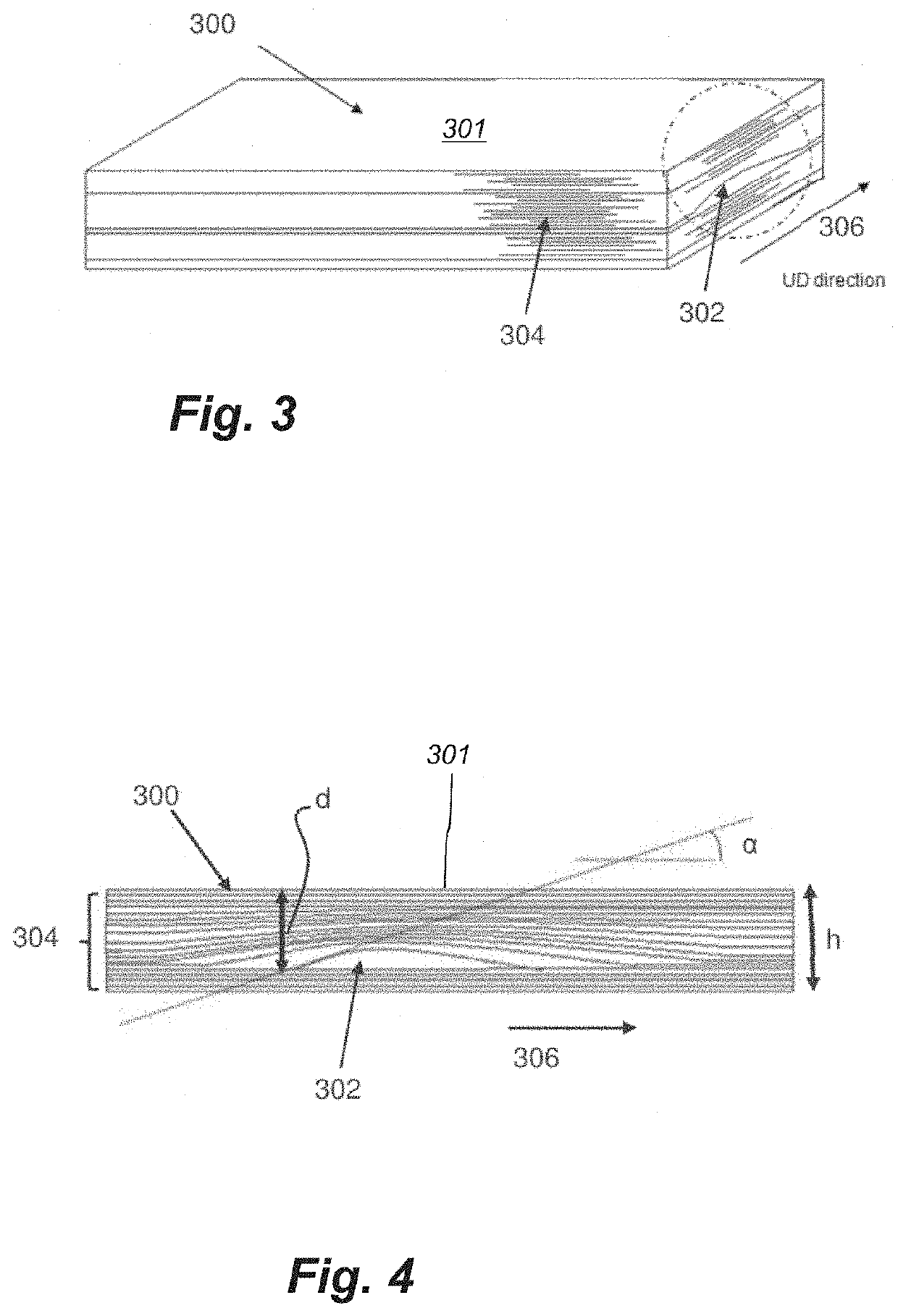Dual scan method for detecting a fibre misalignment in an elongated structure
a technology of elongated structure and fibre misalignment, which is applied in the field of composite structures, can solve the problems of insufficient visual inspection, insufficient visual inspection, and inability to detect fibre misalignment, and achieve the effects of rapid and cost-effective, and reducing the likelihood of fibre misalignmen
- Summary
- Abstract
- Description
- Claims
- Application Information
AI Technical Summary
Benefits of technology
Problems solved by technology
Method used
Image
Examples
Embodiment Construction
[0042]As stated in the background, there is a need for a method for detecting fibre misalignments, such as identifying hidden (below the surface) fibre misalignments in an efficient and non-destructive manner. The invention relates to a method for detecting a fibre misalignment in an elongated structure, such as a wind turbine blade component, an airplane wing, or a vessel hulls. The invention is particularly suited for large elongated structures where a non-destructive inspection is highly valued due to the costs occurred by a destructive inspection. Accordingly, the invention preferably relates to wind turbine blades as well as intermediary elongated structures having a total length of at least 30 metres, 40 metres, 45 metres, or 50 metres and / or a thickness of 1-80 mm. Accordingly, the invention preferably relates to wind turbine blades comprising materials having different densities so that x-ray radiation can reveal misalignments.
[0043]Fibre misalignment refers herein to a misa...
PUM
| Property | Measurement | Unit |
|---|---|---|
| wavelength | aaaaa | aaaaa |
| wavelength | aaaaa | aaaaa |
| angle | aaaaa | aaaaa |
Abstract
Description
Claims
Application Information
 Login to View More
Login to View More - R&D
- Intellectual Property
- Life Sciences
- Materials
- Tech Scout
- Unparalleled Data Quality
- Higher Quality Content
- 60% Fewer Hallucinations
Browse by: Latest US Patents, China's latest patents, Technical Efficacy Thesaurus, Application Domain, Technology Topic, Popular Technical Reports.
© 2025 PatSnap. All rights reserved.Legal|Privacy policy|Modern Slavery Act Transparency Statement|Sitemap|About US| Contact US: help@patsnap.com



